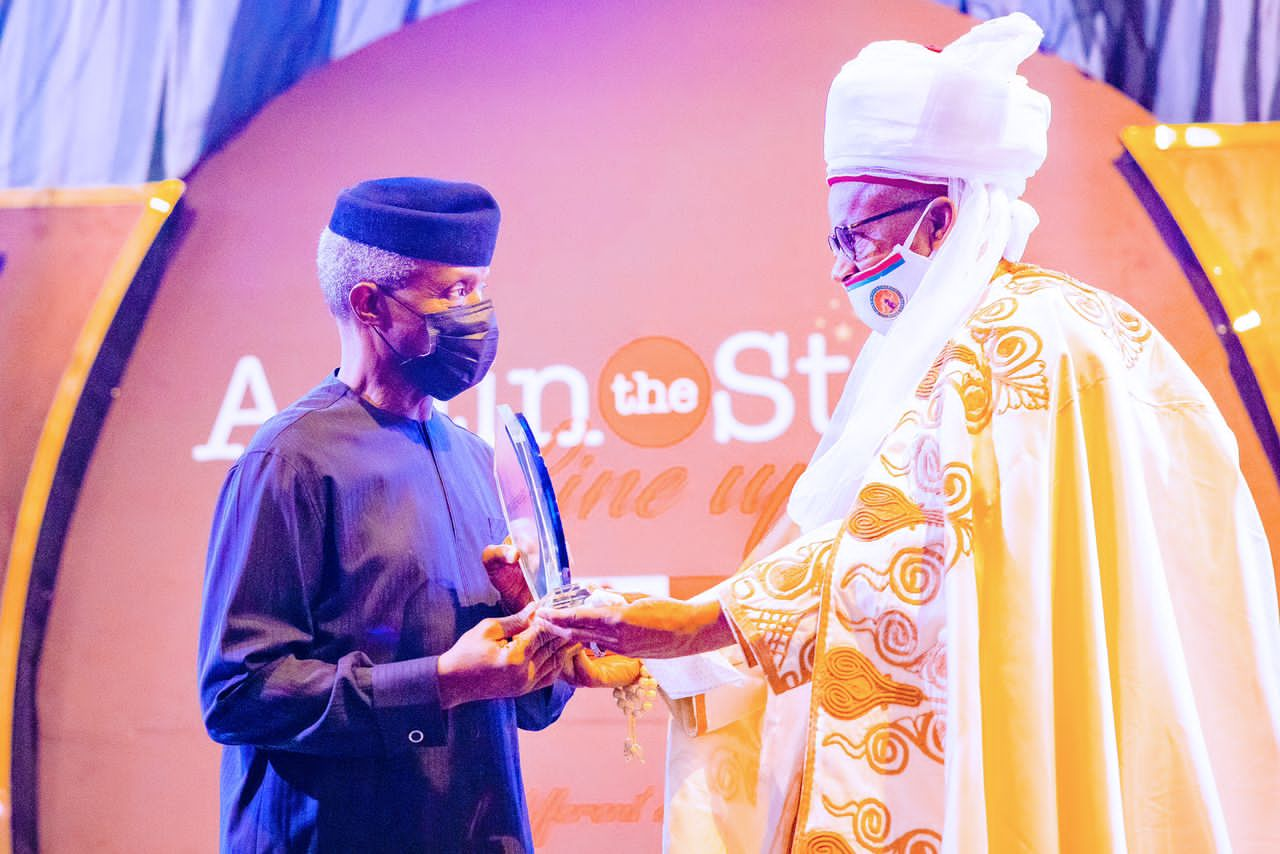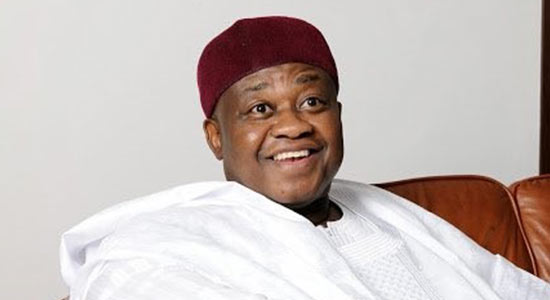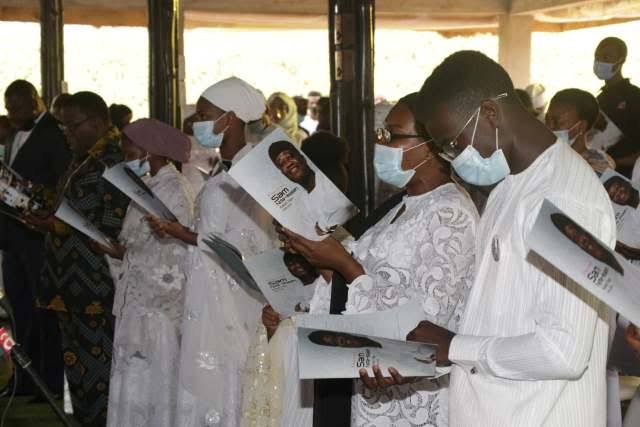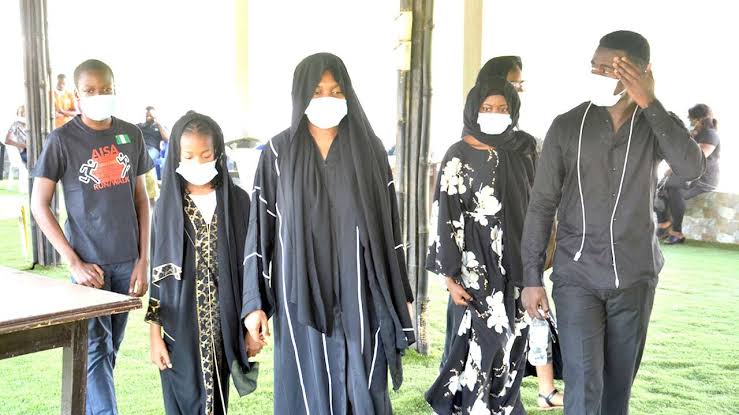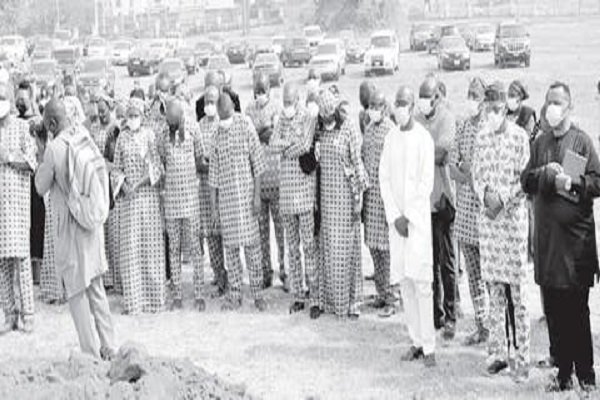Azu Ishiekwene
I first met him after the 2003 election, which his candidate, General Muhammadu Buhari, lost. I was then Editor of PUNCH and Sam Nda-Isaiah, was founding member and Publicity Secretary of The Buhari Organisation (TBO). He came to see me about the coverage of Buhari, which obviously displeased him.
He barged into my office, flinging the door wide open, before I had time to figure out if he even knocked. His voice preceded him, booming over the office partition and giving my secretary no chance to announce his presence.
“Azu,” he pulled a seat, “you people are not being fair to Buhari at all, haba!” He went on and on the substance of which was that he thought there was a deliberate editorial decision to antagonise his principal.
If you know Sam, you would know that he did most of the talking. I managed to tell him that PUNCH had nothing personal against Buhari and that if he had any specific evidence to the contrary, I would be happy to investigate it. He seemed slightly mollified, but I could tell that his visit to PUNCH was one of the many media rounds on his schedule on that Lagos trip.
Anyone with Buhari as his principal in 2003, was on a long, bumpy road. Of course, Buhari was not an unknown; he was military head of state between 1983 and 1985. Before that, he was Federal Commissioner for Petroleum in 1977 and before that, first military governor of Borno State, among other high-profile positions.
The problem was how he was known or perceived: a loner, a religious bigot, an obtuse, obdurate, stony-faced fellow, and above all, an incorrigible hater of press freedom and human rights, with long, harsh jail sentences he meted out to politicians as military ruler, to show for it.
If charm was a currency of politics, Buhari’s persona shortchanged him. You wouldn’t notice, of course, if you were Tony Momoh. Or Sam who not only had a job to do, but as it seemed to me from our first encounter, also had a conviction to proselytise for Buhari.
Sam had been with Buhari way back, apparently since Buhari’s days as Chairman of the Petroleum Trust Fund (PTF), where he not only worked with PTF consultant/brain-box and CEO of Afri-Projects, Salihijo Ahmad and the others, but also met Zainab, the woman who would later become his wife and best friend. In a way, Sam owed Buhari more than a post-election defeat mop up. But of course, I didn’t begin to know the extent of his debt till nearly seven years later.
When I left PUNCH in April 2010, the headline was that I had retired after 21 years of service. That was funny because I was only 45. The irony wasn’t lost on three publishers – Vanguard founder and publisher, the venerable Uncle Sam Amuka; ThisDay Publisher, Prince Nduka Obaigbena; and of course, LEADERSHIP Chairman, Sam.
Each invited me to “quit retirement” and join them. I declined, but Sam would not take no for an answer. “My…my…my friend,” he would stutter over the phone, “p—l—e—a—s—e, stop this your ‘retirement joke’ and come let’s do this newspaper together and make some money!”
If you know Sam, you’ll know you’ll need a very good reason to turn him down about anything he asks for. My best excuses, including the fact that I was still writing for ThisDay, not to mention my well-known dislike of Abuja as the refuge of political scoundrels, didn’t stop Sam from pressing the matter.
There was something else, I didn’t immediately tell him. It was said that he had a disposition comparable to Randolph Hearst’s (the US businessman/publisher famous for instigating reporters to make up war stories), but even worse.
They said that on a bad day – which was often – Sam could throw a staff who refused to do his bidding out the window in a fit of rage. He could promote a reporter to MD one day, and then the next, kick his ass. He was a mobile volcano. Did I want to work with such a person?
Sure. I wanted to try and told Sam I would accept his offer as a consultant for four months, starting October 2010. After that we’ll decide what is next, hopefully, without trading punches.
It turned out to be an initial three-year contract during which I worked first as Managing Director, and later, as Group Managing Director, reporting directly to Sam.
Let me talk, first, about the newspaper part. Sam and I started off with a disagreement, within the earshot of Ahmed Kuru, his friend, sparring partner, brother and confidant. Sam said the first thing he wanted me to do as MD was to sack all the staff, and I mean, all.
“Azu, see ehn, if you don’t sack everybody, and I mean everybody, and start afresh, you won’t succeed! I’m serious…I’m not joking oh! Ask Ahmed Kuru,” he said, pointing to a gentleman in white kaftan sitting at a conference table across the room.
I disagreed. But I found something out later. Sam talks big, very big. He talks tough, very tough. But when it came to firing people, Sam couldn’t swat a fly, out of pity. Sam was part of the problem, mounting layers of deadwood on a struggling company.
When I thought I had built up a good case to fire someone, the same Sam who wanted me to “sack everybody” on day one, would call and say, “Azu, but you know you can’t sack him now! He’s a useless guy, very stupid guy. God knows how many opportunities I have given him. He’s a very stupid guy! But you can’t sack him. Please let’s give him another chance!”
His pity party was a problem. Not only would he defend those pencilled in for sack, he could not also resist pressure from various quarters to recruit without a need. When I blocked him, he created a revolving door to recycle those he should not have hired in the first place. I can only recall a few occasions when those he fired stayed fired.
Sam would blow hot in the morning and warn culprits never to come near him. But later that same day or the next, he would say, “Very stupid girl…she’s very stupid, useless!”, and take them back, if not in LEADERSHIP when I put my foot down, then somewhere in his sprawling food chain.
As LEADERSHIP grew in influence and stature, the progress became a problem for him in at least two ways: One, how to build a sustainable structure that could compete against the dominance of Daily Trust, especially in the North and make inroad into the tight Lagos market; and two, how to keep at bay pressures from family, friends and political allies who believed he should make the newspaper sing for them or his foes who thought the paper was targeting them unfairly.
It didn’t help matters that Sam was not just a writer (his column, ‘Last Word/Ear Shot’ sold Daily Trust before he compiled it and earned N17m from which he started LEADERSHIP in 2004 as a weekly), he was also a straight shooter – bare-knuckled, forthright and down-to-earth, which comes with a heavy prize, especially for any publisher-businessman.
His opinion was indistinguishable from LEADERSHIP’s however much he tried to argue to the contrary. With former President Olusegun Obasanjo, however, Sam did not even bother to hide his hand or disguise his contempt.
I remember that even before I joined, the newspaper splashed Obasanjo’s alleged third term bribe-sharing formula story involving Obasanjo and the National Assembly on its front page, with daily sniper shots from Ghana-must-go, the irreverent cartoon strip on the back page.
There were also skirmishes with President Umar Musa Yar’Adua’s government. Yet, if the mother of all battles was with Obasanjo, the cousin was his remarkable encounters with President Goodluck Jonathan. At the height of Yar’Adua’s illness, when some people around the late president were propping him up for their own selfish reasons, Sam, a strong northern voice, took the position that Jonathan should be sworn in, bringing him into collision with the puppeteers.
Sam told me of how Jonathan called him aside once and said to him, “My brother, why you dey fight me like this now? I never see where person build house finish, come take im own hand destroy am o!” In vain did he try to explain to the former president that it was nothing personal.
We had our occasional disagreements about staff performance, discipline, targets and what needed to be done to make the newspaper a competitive and compelling brand in the quickest time possible. His appetite for risk made me nervous. When I couldn’t thwart him – which was often – I just let him be. Sam was stubborn in his conviction but he wasn’t unreasonable, especially if you held your ground and showed a better, quicker way to get things done, with results.
He was impatient generally but more so with laziness and might judge you unserious if you were attending a meeting with him without a notebook and a pen. But he was also just as quick to reward – even exaggerate – the slightest hint of brilliance and competence as he was quick to dismiss excuses and non-performance.
Leave the pharmacist son of a newspaperman turned newspaperman, for a while. Sam was soft. And nowhere was that more apparent than when he was dealing with women, children, vulnerable groups – or when he was talking about his close friends – a circle that included the low, the high and the mighty.
Until l left LEADERSHIP in 2015, I kept a list of about a dozen widows into whose accounts Sam gave a standing instruction to pay various sums of money monthly. That may sound small but keep in mind that the company was struggling at the time.
And when you add the list of the dozens of indigent students he catered for, the dozens more he employed directly, helped to find jobs elsewhere, or stood up for to redress an injustice, you will begin to get the picture of Sam’s charity. To slightly paraphrase Churchill, we make a living by what we get. Sam made many lives by what he gave.
He had a complicated relationship with Buhari, the sort of complicated thing between Mamman Daura and Buhari which Sam described in his unforgettable tribute to Daura on his 80th birthday. Adebola Williams’s Red Media may have put Buhari in bowtie and suit five years ago, but no one can share with Sam the original credit for branding Buhari as politician when most thought him a misfit.
That was part of Sam’s mission to my office in Lagos in 2003. He first took on the Herculean task of convincing the press that Buhari was not a bigot, that his cook was a Christian a significant number of his domestic staff were non-Muslims; it was Sam that took on himself the task of convincing the public that Buhari was not the monster that the press believed he was; it was Sam that sold Buhari as the incorruptible General with a facade of steel but a heart of flesh.
And when money became a serious problem for Buhari’s presidential ambition, especially during his first two attempts, it was Sam in front, closely allied with Abba Kyari, Adamu Adamu, Buba Galadima, Sule Hamman (the TBO original) who prised open the purse of T.Y.Danjuma to save Buhari’s campaign from sinking irretrievably.
Sam was a Buhari diehard. But he had the singularly astonishing gift of espousing the President on the one hand and on the other being on excellent terms with a number of Buhari adversaries like former military president, General Ibrahim Babaginda; and the Sultan of Sokoto.
The combined leverage of his father-in-law, Mamman Remawa, a brigadier general (commissioned at the same time with late General Domkat Bali), and his own father’s pedigree as prominent and influential journalist in the North, gave Sam rare access to the Generals that matter – from Yakubu Gowon to T.Y Danjuma and from Babangida to Sani Abacha and Abdulsalami Abubakar.
Sam’s confidential and explosive account of how Danjuma arrested Nigeria’s first military head of state, General Aguiyi-Ironsi, on the eve of the Civil War, is a matter for another day.
Of all the Generals, Obasanjo was the odd one, yet not only did LEADERSHIP vote Obasanjo Person of the Year on Sam’s watch, he often said of the Ota chicken farmer, “Obasanjo knew what it was to run a government. His competence was never in doubt!”
But the combined effect of his father and that of his in-law, General Remawa, did more than enhance his standing in top military circles in the North. Together with the liberal influence of both men – his father was a Christian and his father-in-law a Muslim – he also received a liberal education, made friends right across the country and taught himself tolerance, sensitivity and respect for others regardless of their faith or creed. He had just as many close Muslim friends as Christian ones with a good number of neither in the mix.
Sam knew how to laugh and like Chairman Emeritus of PUNCH Chief Ajibola Ogunshola said in his tribute, Sam also knew how to make others laugh. And that included Buhari. He told me he once joked with the President that among his contemporary Generals, Buhari was probably the only one who didn’t have a girlfriend, to which Buhari almost cracked a rib.
“On another occasion,” he confided, “when Guardian on Sunday published a strip of a tortoise in Aso Rock, which they labelled ‘Baba Go Slow’, I asked him if he knew the person that cartoon was referring to. The President laughed and laughed and laughed and then said, ‘don’t mind them. I know it’s me they’re referring to.’”
So, why did he contest against Buhari for the presidential ticket of the All Progressives Party (APC) in 2014?
Two reasons: One, he took Buhari at his word when the candidate said in tears after his third attempt that he would never run again; and two, he took Abba Kyari a bit too seriously, when Abba Kyari, Adamu Adamu (who later claimed Sam misconstrued him) and a few others put him up to the idea after the extraordinary celebrations marking his 50th birthday in May 2012.
They made him believe it was time for him to run because the country needed a new face. Discussions on the matter were had in Kaduna and Cambridge. He should have known better – but that was Sam, trusting like a child.
When his bid for the APC presidential ticket failed in December 2014, as I feared it would, that hurt. Not really because he lost, he told me. What hurt, he said, was that he felt betrayed and hard done by. Some said what pained him most was the monetary loss, that Danjuma funded his campaign and he had only 10 votes at the convention to show.
That’s not true. Sam did not ask for and Danjuma did not give him a kobo for his campaign. In fact, when he lashed out after his defeat and Danjuma was contacted to restrain him, the retired general said since he didn’t give Sam any money for his campaign, he had no moral right to restrain him from protesting.
That loss was just the beginning of Sam’s winter spell which he would bear with equanimity. Insiders and latter-day-saints to APC froze him out after Buhari’s electoral victory and it would take a few years for the wound to begin to heal. I will deal with these points at length in another article, soon.
Sam took life very seriously, perhaps, too seriously. He was a family man. There’s a picture of him at a very young age on his mantelpiece where he is on bicycle. The look on his face is one of a kid on a medal chase, yet no one was competing with him.
His library in his office and home could fill a 48-ft container and a good number are books he had read in between his long, frequent travels and his long, sleepless nights. He loved the entrepreneurial spirit of the US and was fascinated by its politics. He could speak like the curator of Michael Bloomberg’s legacy or debate like the presidential historian of the Kennedy dynasty.
But he looked East for his model of government. He adored the discipline and organisation of the Chinese and Deng was his main man, not just because they were probably of the same height, but also for his big, bold ideas.
If it’s not big, it’s not Sam. At the last count, he had seven daily titles in his portfolio (including the first and only daily Hausa daily newspaper in the country), apart from a content and education company.
He also had dozens of other businesses from property to farming and dog-breeding and from manufacturing and e-Commerce to outsource customer services. We were even working on an iconic publication, which he insisted must be called: The Big Book!
That’s Sam. It had to be big or nothing. And as he once said to me, big dreams don’t die. I believe.
Goodnight, Sam!
Ishiekwene is the MD/Editor-In-Chief of The Interview
